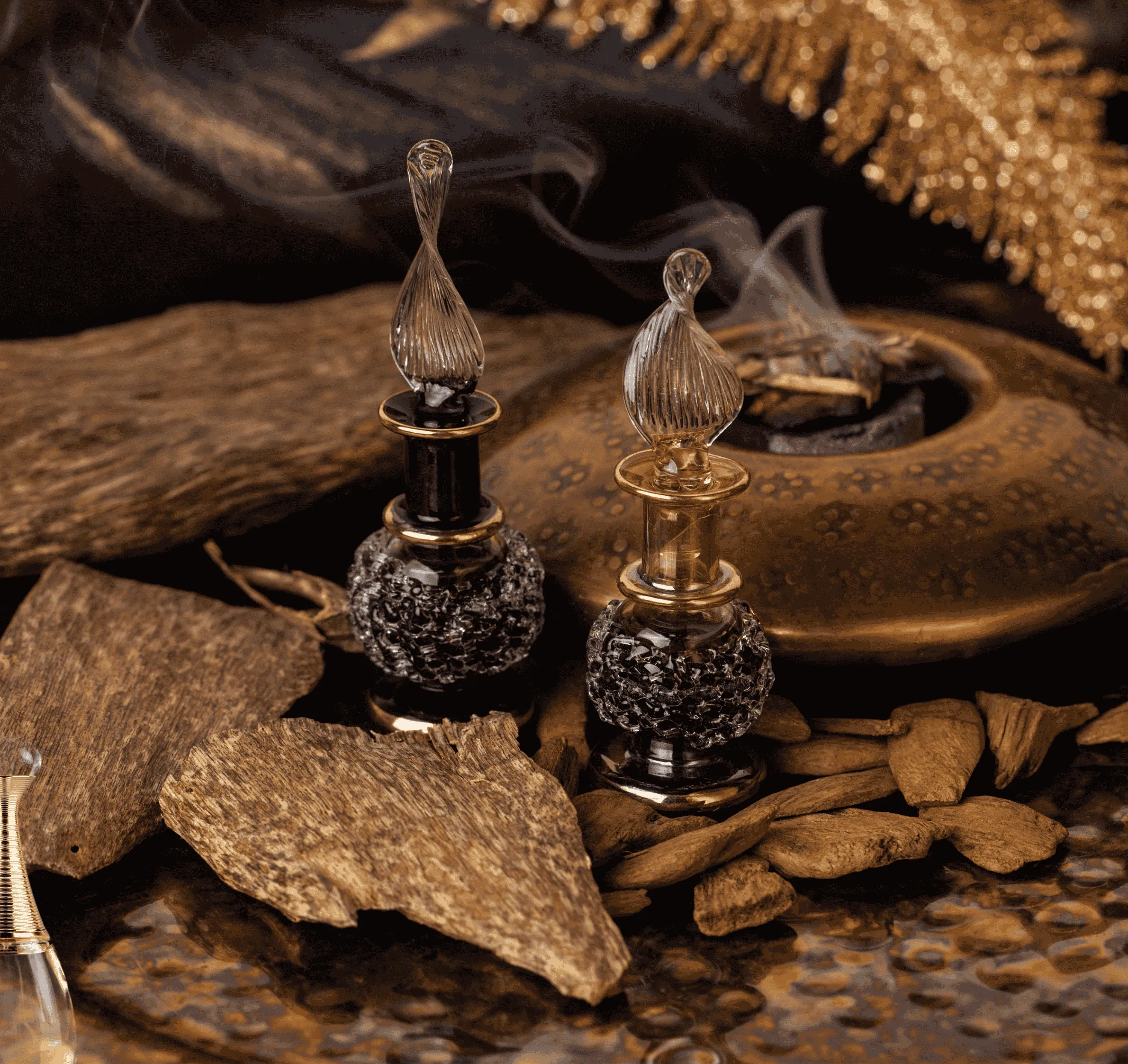

Welcome to the aromatic world of oudh—a fragrance woven into the cultural fabric of the UAE.
In this article, we uncover how agarwood has become both a cherished tradition and a thriving global business rooted in heritage, trade, and sustainability.
Known as "oudh" in Arabic, agarwood holds a sacred place in Emirati life. It is burned to honor guests, perfume clothes, and enhance prayer rituals. From ancient hadiths referencing Prophet Mohammed's love for perfume to its presence in Islamic traditions and the tales of "A Thousand and One Nights," oudh is more than a fragrance—it's heritage. In UAE homes, agarwood is used as bakhoor, dihn al oudh (pure oil), or scented chips, and remains an integral part of personal and cultural identity.
The UAE is a dominant player in the agarwood market alongside Saudi Arabia. Dubai acts as both a massive consumer market and a re-export hub, sourcing agarwood from Malaysia, Indonesia, and India, often via Singapore. Imports of agarwood chips alone grew from 56 tonnes in 2004 to over 162 tonnes by 2007. Major retail outlets and perfumeries in malls and bazaars keep the demand high, with a trend toward diversification into oil blends and luxury perfumes. Singapore, Bangkok, and direct sourcing from Southeast Asia form the backbone of the UAE’s supply chain.
Despite taking a reservation on many agarwood species, the UAE complies with CITES protocols via its Ministry of Environment and Water and Federal Environment Agency. Importers must register and obtain permits. Dubai Customs and airport inspections monitor shipments to curb illegal trade. The growing concern over depletion of wild agarwood sources has driven efforts toward sustainable sourcing and cultivation. The UAE has called for collaboration with producer countries, aiming to protect this ancient trade while meeting market demand.
Emirati and Gulf consumers deeply value high-quality agarwood for weddings, prayer, and everyday luxury. Cambodian and Indian-origin oudh enjoy a premium image, though actual origins often vary. A growing market for "BMW" (black magic wood) and blended oil products exists for household use. Large fragrance brands are also innovating with modern oudh perfumes. Despite competition and secrecy among traders, demand continues to rise—highlighting the balance between cultural tradition and modern luxury appeal.
Agarwood, or oudh, is more than a fragrance in the UAE—it's a symbol of hospitality, spirituality, and social prestige. It's traditionally burned to welcome guests, used during prayers, and applied as perfume before special occasions.
Most agarwood in the UAE is imported from Southeast Asian countries like Indonesia, Malaysia, and India, either directly or through trade hubs like Singapore and Bangkok.
Yes, but it is strictly regulated. The UAE is a party to CITES and monitors agarwood imports, exports, and re-exports through official permits and customs inspections. Traders must register with the relevant CITES authorities.
Popular products include agarwood chips (oudh), bakhoor, pure agarwood oil (dihn al oudh), blended perfume oils, incense powders, and modern spray perfumes containing oudh essence.